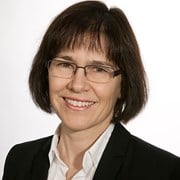“We need CCS to reach our climate targets. To make the technology commercially viable, we must reduce costs and optimize solutions across the value chain. R&D plays a key role here. TCCS is an important meeting place, contributing to knowledge sharing and momentum," said Terje Aasland, the Norwegian Minister of Petroleum and Energy in advance of the conference.
The Trondheim CCS Conference (TCCS) is a non-profit, scientific conference that focuses on the research and development of CO2 capture, transport, utilisation and storage. Its objective is to advance, present and discuss the latest work undertaken by R&D institutions, universities and industry on CCS. TCCS takes place every other year in Trondheim, Norway. It is co-organised by SINTEF, the Norwegian University of Science and Technology (NTNU), and the Norwegian CCS Research Centre (NCCS).
"I firmly believe that in order to achieve global success with full-scale CCS, we must embrace openness, share knowledge, and learn from our mistakes. To make CCS economically viable, environmentally friendly, and accessible, the magnitude of the task requires all of us to actively participate. Together, we can shape a better future," said Mona Mølnvik, director of NCCS.
TCCS-12 is set to break all previous records for attendance, with 600 participants from over 37 countries registered.
“TCCS-12 is going to be an exciting conference. CCS is a crucial technology for achieving our climate goals. It is on the agenda of the International Energy Agency (IEA) and included in national climate plans,” said Nils Røkke, executive vice president of sustainability at SINTEF and chair of the TCCS committee. “TCCS-12 is the place to be for insight into the latest CCS technology and research.”
TCCS-12 features presentations, side events, and speeches from the entire CCS value chain. Over 291 abstracts have been submitted, which is also a new record for TCCS. Topics to be covered include CO2 transport and storage, legislation and regulation, direct CO2 air capture (DAC), CO2 removal (CDR) and negative emissions, and CCS and hydrogen.




